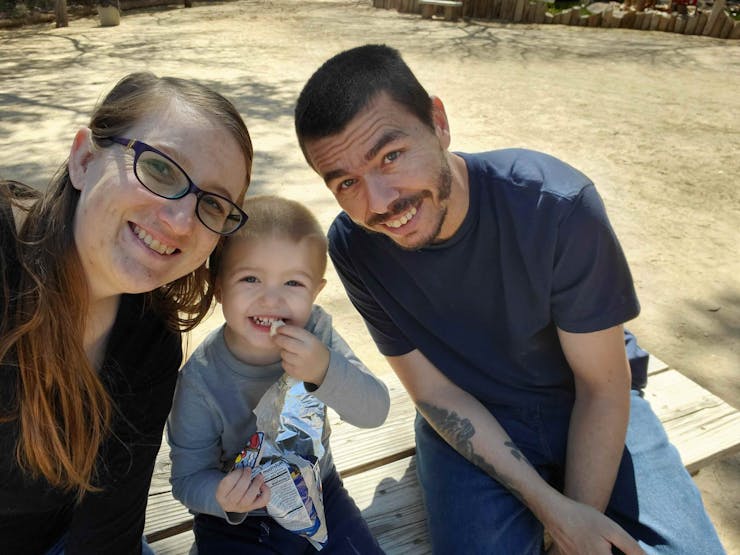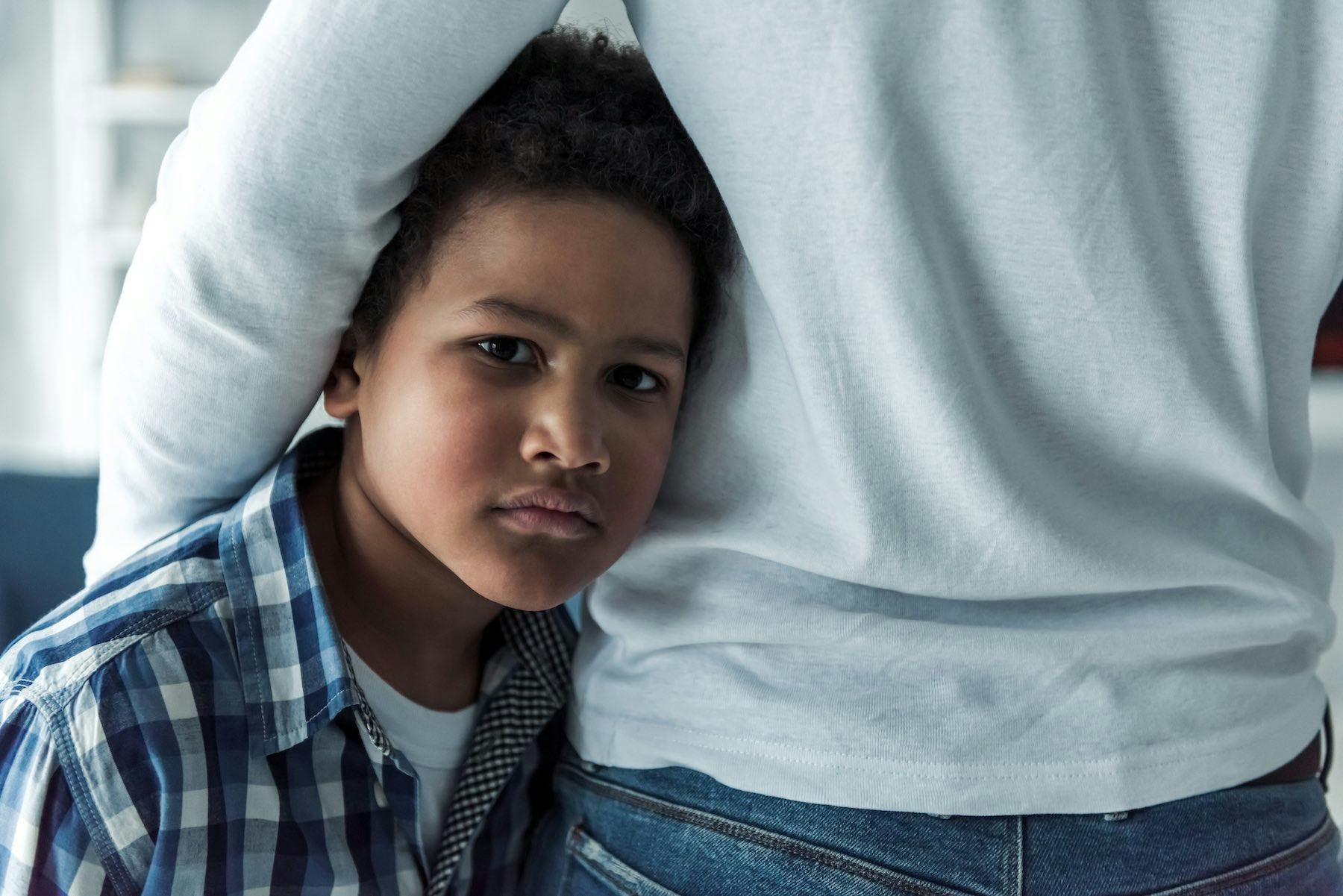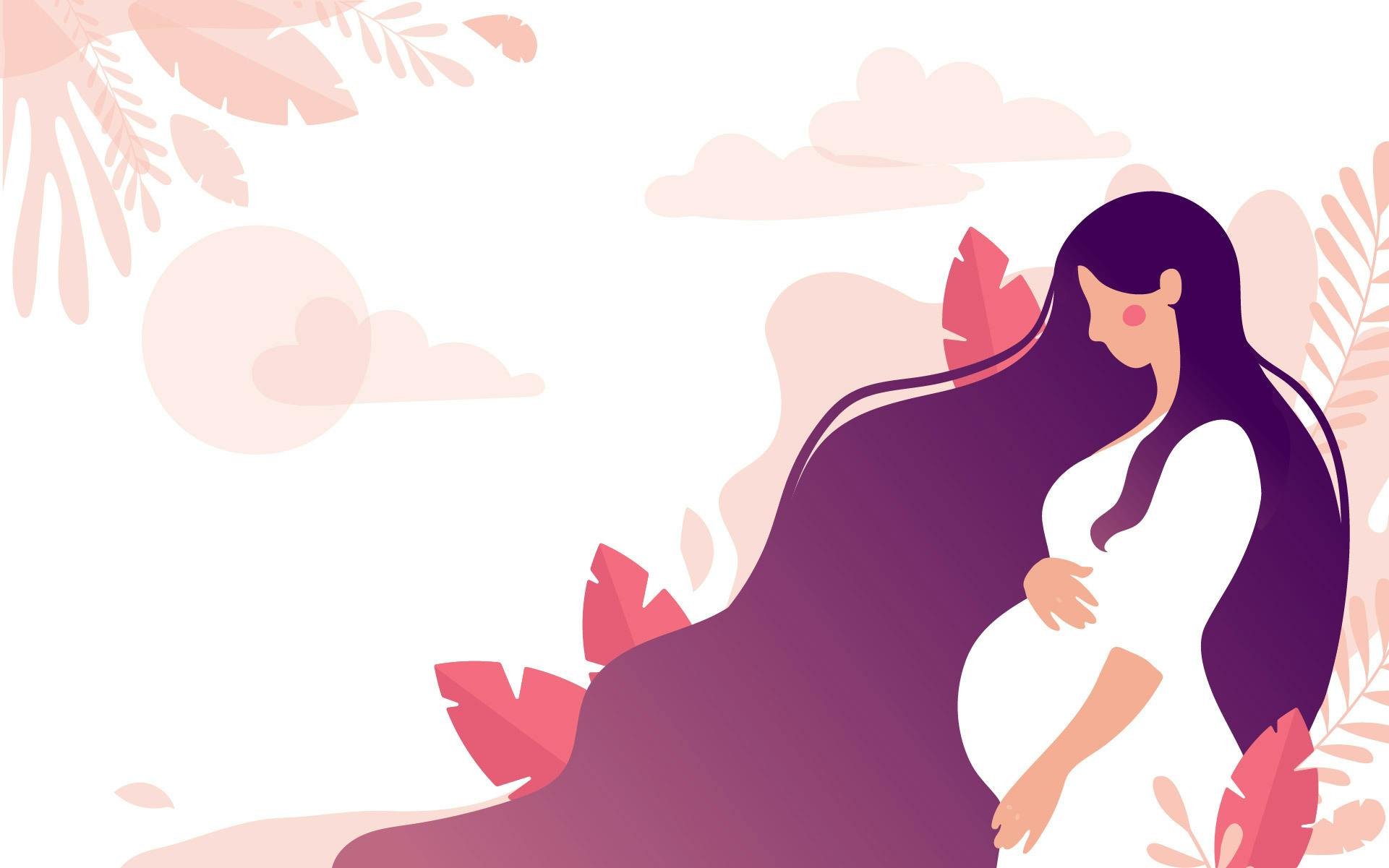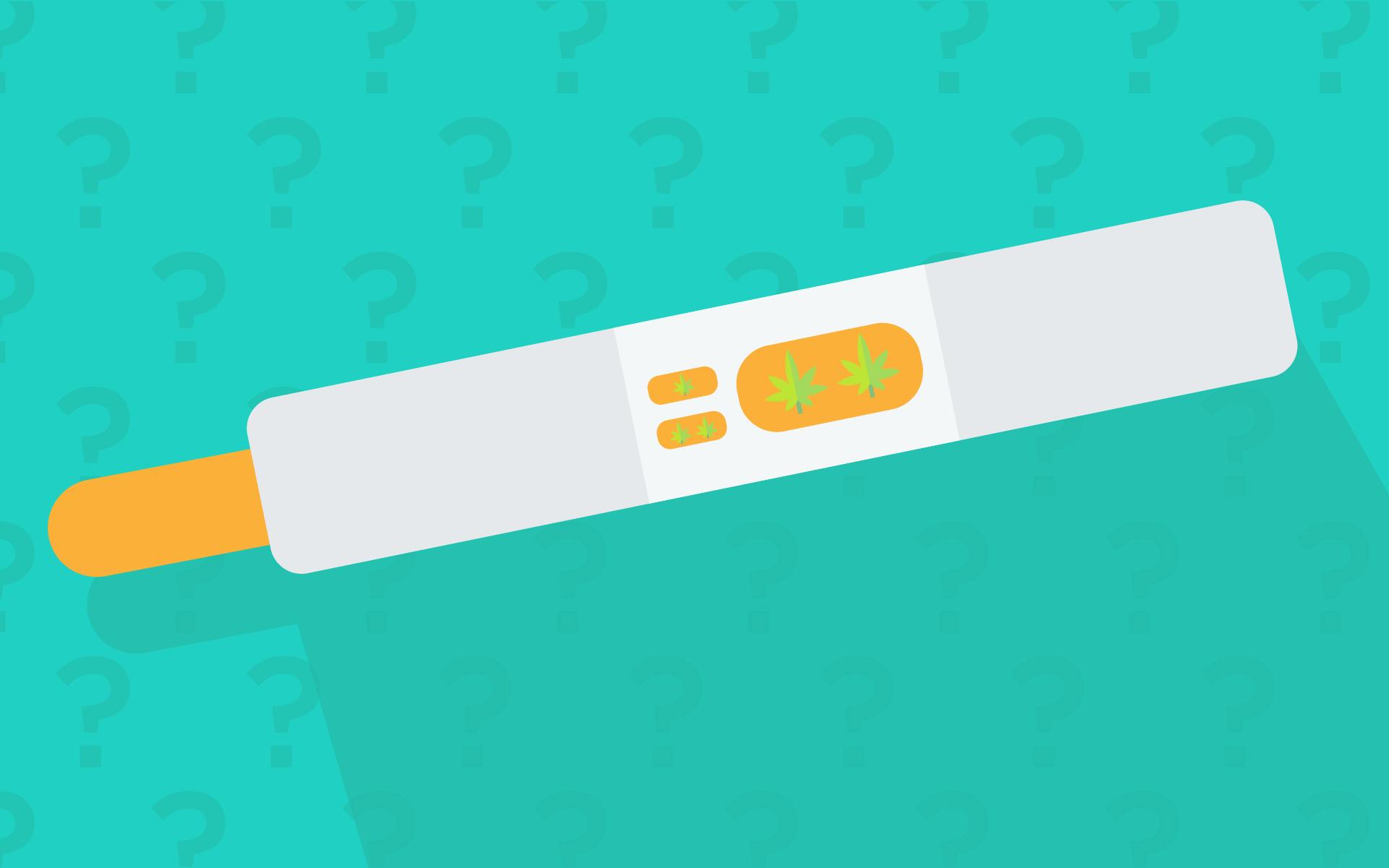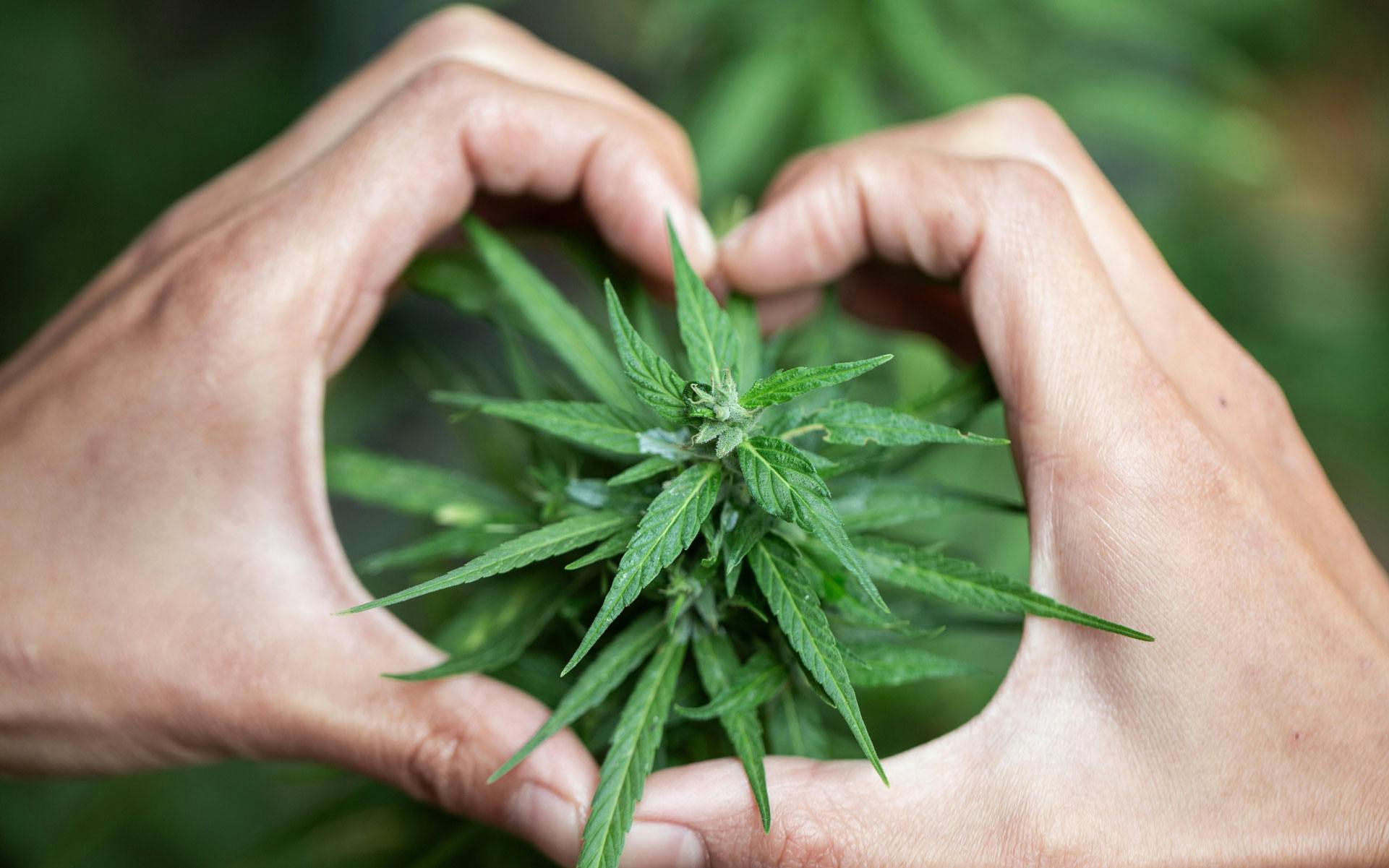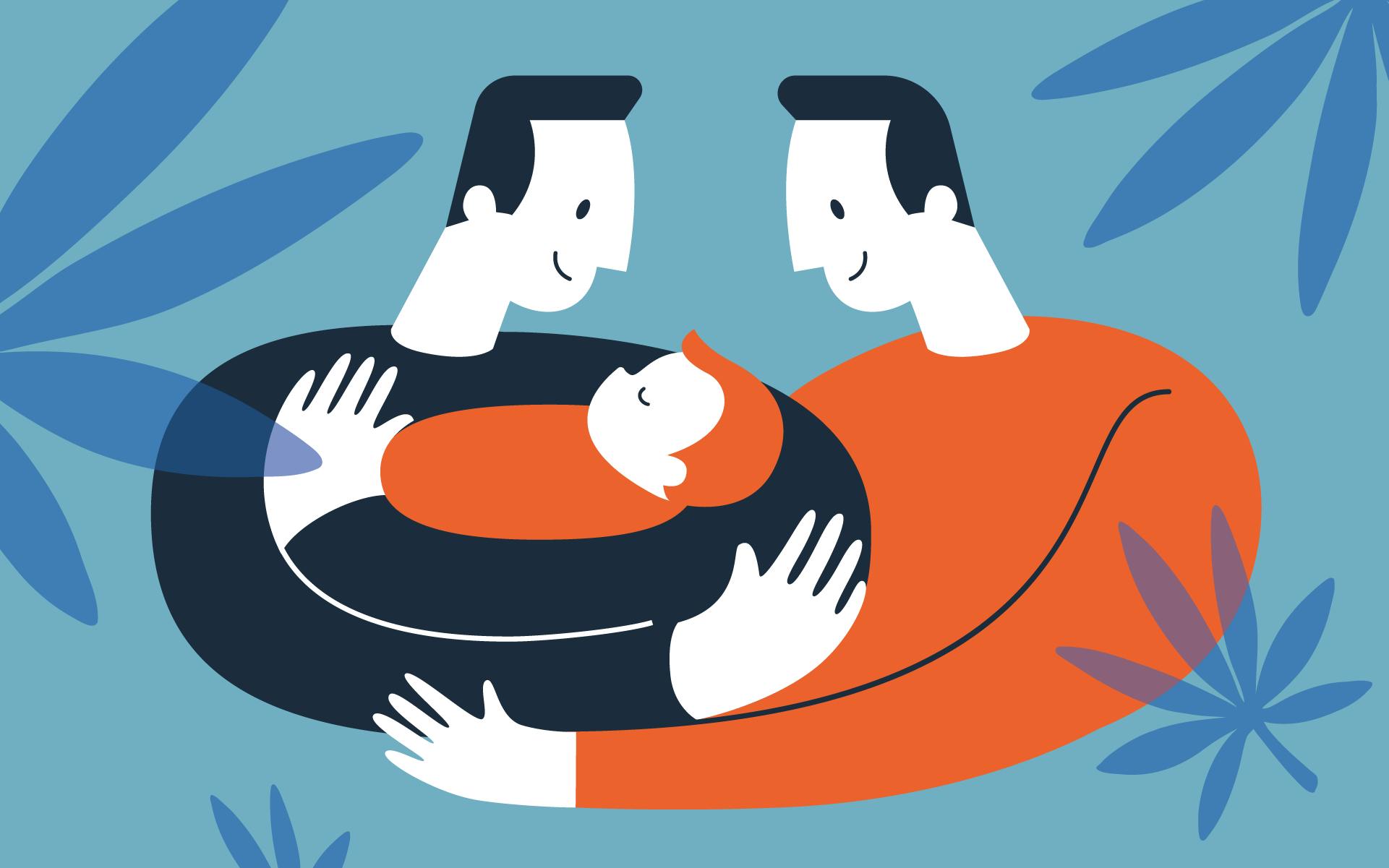Earlier this year, a state legislator in Alabama introduced a horrifying bill straight out of The Handmaid’s Tale. The law, proposed by state Sen. Larry Stutts, would require all female medical marijuana patients under age 50 to show a negative pregnancy test from a doctor in order to purchase medical cannabis. The bill would also prohibit breastfeeding women from buying medical marijuana.
The bill was largely laughed off as a crackpot gesture.
Lost in the news cycle, however, was the fact that many state agencies—even in adult-use states—are already punishing pregnant women and mothers of young children for fully legal cannabis use. All across America, prenatal and postnatal women face Stutts-like penalties every day for choosing to partake in perfectly legal activities.
‘Exposure’ to cannabis is child abuse, say the old laws
According to the federal Children’s Welfare Information Gateway (CWIG), 23 states and the District of Columbia specifically classify prenatal exposure to controlled substances as child abuse or neglect.
Cannabis may be legal, but child welfare laws often don’t reflect the new reality even in legal states.
All but seven of these states also have medical or recreational cannabis programs that say it is legal for adults 21 or older to buy and use cannabis with the proper identification, regardless of pregnancy or parenthood.
In those legal states, laws have changed to end prosecution for growing, possessing, and selling licensed cannabis. But legal cannabis still remains, technically, a “controlled substance,” and those child welfare laws have not been updated to reflect marijuana’s new legal status.
That discrepancy in state law has created a parent trap—one in which the use of a perfectly legal substance can lead to the loss of one’s own children, taken by force from their own law-abiding parents.
This isn’t something that could happen only in theory. It’s happening today to parents in prohibition states, in medical states, and in adult-use states.
When cannabis is the only answer
There is perhaps no more compelling example of this predicament than the experience of Lindsay Ridgell.
Ridgell, who turned 34 last month, is a social worker who lives in Phoenix, Arizona. After giving birth to her son in May 2019, Ridgell was reported to Arizona’s Department of Child Safety (DCS) and placed on the state’s child abuse Central Registry. The reason? During her pregnancy, Ridgell turned to cannabis to treat an acute case of hyperemesis gravidarum (HG), a life-threatening condition that causes extreme nausea and vomiting during pregnancy and can lead to miscarriage.
Shop highly rated dispensaries near you
Showing you dispensaries nearDuring her pregnancy, Ridgell’s severe HG twice led to dehydration so severe she ended up at a local hospital emergency room. In order to eat and function normally, Ridgell, who already had a medical marijuana card for irritable bowel syndrome, continued using cannabis regularly during her pregnancy for her HG symptoms.
At the time, Arizona was a medical-only state. Cannabis became legal for all adults there in late 2020.
‘I couldn’t eat.’ But cannabis helped
Budtenders at her local dispensaries never discussed her pregnancy, she says, even when she was obviously pregnant. For that matter, Ridgell’s healthcare providers—who were aware she had a medical cannabis card—never followed up with her about her cannabis use, either.
“I was so sick,” Ridgell recalled in an interview with Leafly. “I just broke down crying every time I tried to stop cannabis. I was like, I just can’t eat, I need it. It helps.”
Her OBGYN prescribed her several anti-nausea medications. Ridgell didn’t like taking the prescription drugs because they weren’t as helpful as cannabis, and many of them came with unpleasant side effects and risks for the baby. Zofran, one antinausea medication she was prescribed, has been linked to certain birth defects like cleft palate. So Ridgell kept using cannabis.
Working within the state system
Was Ridgell unaware of the state’s child-protective laws regarding prenatal cannabis use? Hardly. In fact, Ridgell at the time worked as a case manager for Arizona’s Department of Child Safety.
In her three and half years at DCS, Ridgell says she saw many cannabis-exposed babies that had been reported to the system but were doing fine. She also saw many success stories throughout her peer group.
“The [kids] were totally fine,” she recalled. “So, I wasn’t concerned that I was going to hurt my son at all.”
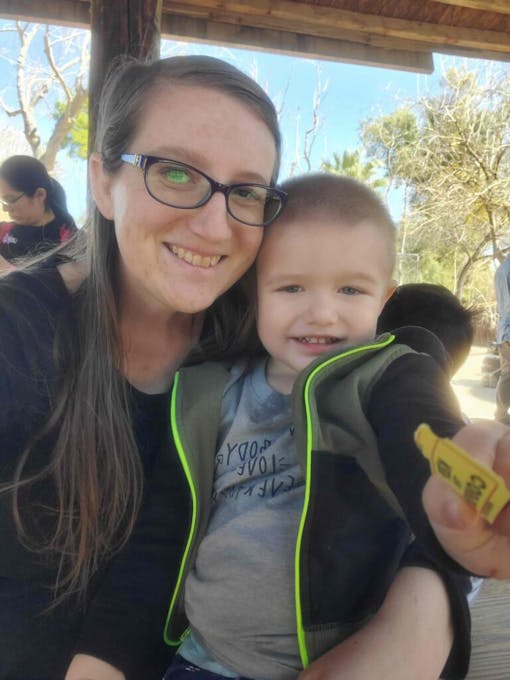
Birthday: May 4, 2019
Ridgell’s son Silas was born full-term and at normal weight on May 4, 2019.
The delivery was arduous. Soon after he entered the world, Silas was transported to the Neonatal Intensive Care Unit (NICU) due to some breathing difficulty. There, he was diagnosed with strep throat and bleeding in his brain due to the strenuous labor. Both conditions resolved themselves within a few days.
Staff at the NICU also ordered a substance exposure test for the infant after noting he was jittery—a fairly common issue in newborns. The test came back positive for Buspar, her anxiety medication, and Benadryl, her allergy medication, both of which Ridgell was taking on doctor’s orders. It was also positive for cannabis.
That positive result would trigger a three-year nightmare. From May 2019 to April 2022, Lindsay Ridgell would fight the State of Arizona tooth-and-nail for the right to clear her name. All because of an unnecessary drug test that came back positive for cannabis—a substance that’s legal in Arizona.
Cannabis and pregnancy: What the science says
The science around pregnancy, postpartum and cannabis remains unclear. Certain evidence shows that THC can be passed to the baby from the mother in utero and through breast milk. Some research suggests that such exposure may impact an infant’s short-term growth and long-term behavior and neurodevelopment. However, a comprehensive review of existing research like this one from Frontiers states that nothing in the totality of evidence around cannabis suggests THC negatively impacts infants. And, anecdotally, many pre- and perinatal mothers report huge benefits to using cannabis with intent during pregnancy, birth, and postpartum.
In a 2016 study published in the scientific journal Women’s Health Issues, and a more recent 2021 study from University of Iowa, researchers found that cannabis is the most commonly used illicit substance during and after pregnancy, often because mothers found a “lack of evidence” that it could do harm.
“Commonly reported sources of information about perinatal marijuana use included Internet searching and anecdotal experiences or advice from family or friends. Few women reported receiving helpful information from a health care provider or social worker,” states the 2016 Women’s Health Issues report. “Women perceived a lack of evidence about harms of perinatal marijuana use, and reported being dissatisfied with the quality of information. Most women said they desired information about the effects of perinatal marijuana use on infant health.”
Drug tests and treatment for…what, exactly?
A few days after Silas’s birth, a social worker asked Lindsay Ridgell if she wanted access to any treatment services. That set off alarms in Ridgell’s head. In Arizona, social workers are required to offer child welfare services to mothers who test positive for cannabis, and those services include a substance abuse assessment, weekly drug testing, and home visiting program, which consists of 3-4 visits per week and a case manager.
Ridgell declined services, but she did agree to do drug tests for two months after Silas’s birth to show DCS that there was nothing else in her or her fiancée’s system but medical cannabis.
After passing both tests, Ridgell and her fiancée were informed their case was closed. But shortly after, Ridgell was informed that DCS officials intended to add her name to the agency’s Central Registry—a list of known or suspected child abusers, essentially—where it would remain for the next 25 years. She would be on the list, they told her, because she had neglected her unborn son by consuming cannabis for her hyperemesis gravidarum.
CPS maintains a punitive ‘permanent record’
DCS, like most child welfare agencies, can’t charge a parent with a criminal offense. (Instead, they refer cases to a local law enforcement agency.) But for Lindsay Ridgell, a quarter-century listing on the Central Registry would act as a kind of quasi-criminal record.
First, she would lose her job. A listing on the Central Registry disqualifies a social worker from certain jobs—like those at DCS, where Ridgell worked. Central Registry listing also would prevent her from taking any other job where she worked with children. Which, as a social worker, would severely limit her career options.
Lindsay Ridgell had not broken any laws. She had not harmed or endangered her child. In fact, from her perspective she’d taken intentional, carefully considered steps to safeguard her pregnancy. But the State of Arizona had decided to classify her as a child-abusing criminal for 25 years.
Other parents, other children, other states

The use of cannabis tests to remove children from their parents using the full force and authority of the state has, sadly, not abated with the coming of marijuana legalization laws. Recent years have seen these examples of children forcibly removed from their homes due to a parent’s legal use of medical cannabis:
- In 2016, Kansas officials took five of Raymond Schwab’s children into custody on suspicion because Schwab, a military veteran, used medical marijuana legally obtained in Colorado.
- The previous year, Kansas authorities removed Shona Banda’s 11-year-old son after he told his drug education program teachers than his mother used cannabis as medicine.
- Leafly investigated the case of Max Lorincz, a 35-year-old father in Spring Lake, Michigan, whose son was taken from him in 2014 because he used legal medical marijuana to treat a chronic condition.
There are other cases out there that haven’t made the news—including some incidents self-reported in social media.
There are further cases that remain hidden because parents fear further repercussions from local authorities, as well as the social stigma that can affect a parent who legally partakes in cannabis.
This is how bias and stigma actually harm people
In general, child welfare professionals say parental drug use is not on its own a reason for a child to enter foster care or to terminate parental rights.
As The Imprintreports, “While [cannabis] isn’t typically the primary reason for an allegation of abuse or neglect, child welfare agencies often present cannabis use as a supplemental concern, pressing the judge to question a parent’s competence as a caregiver.”
Cannabis use, even in legal states, is often used against parents as evidence of abuse and neglect—particularly if an infant is discovered to be prenatally exposed. And, though many hospitals encourage their employees to inform mothers about any planned medical testing, no uniform policy or state law exists regarding consent for newborn drug testing.
Patients drug-screened without consent
As a result, mothers and newborns are often drug-screened without consent—which many reproductive advocates view as a vestige of the War on Drugs, and a contributing factor to the disproportionate impact of the foster care system on BIPOC families.
“It comes down to the nitty-gritty of bias,” said Kelley Bruce, founder and CEO of Cannamommy, a nonprofit dedicated to providing mothers with support and access to the most current information on cannabis and child welfare. “Depending on how your [nurses and social worker] feel about you, they will decide how you go in the system. And the women who are most often reported are those of lower socioeconomic status and minorities.”
As for the consequences of you or your newborn testing positive for cannabis, that depends—the oversight of child welfare, particularly in relation to cannabis, is tremendously subjective.
Zoe Sigman has previously written for Leafly about the ways in which state foster care systems use drug allegations, including cannabis use, as a pretext to remove children from their parents.
That state-driven zeal not only harms children and parents. It has a chilling effect on the doctor-patient relationship.
Original federal law goes back to 1974
The federal law that sets the framework for most of these cases is the Child Abuse and Treatment Act (CAPTA), which was passed by Congress in 1974. CAPTA does not explicitly define child abuse and neglect. Rather, it requires each state to have policies to “address the needs of infants born with and identified as being affect by substance abuse or withdrawal symptoms resulting from prenatal drug exposure or Fetal Alcohol Syndrome Disorder [FASD].”
Since the introduction of medical legalization in 1996, and adult-use legalization in 2012, only a handful of states with legal cannabis have modified their child welfare laws to reflect the new laws, policies, and attitudes.
The parents caught up in this riptide—between old child welfare laws and new cannabis legalization statutes—often feel alone and without recourse. Few politicians are willing to make the effort to change laws that need changing.
Understandably, this results in varied procedures for responding to a report of a cannabis-exposed mother and baby from state to state—and a lot of confusion among parents.
Care providers required to report any parent drug use
For instance, as of a 2019 report, 25 states and the District of Columbia specifically require care providers to report infant drug, alcohol or controlled substance exposure to Child Protective Services when their exposure is discovered. All but four of these states currently have medical cannabis, if not an adult-use program.
Take Arkansas, where medical cannabis is legal, and where there has been a foster care crisis, especially since the pandemic. Here, state law defines prenatal exposure to substances as abuse. All healthcare providers are required to contact the state Department of Human Services when an infant has been born with or is affected by maternal substance abuse resulting from prenatal drug exposure to an illegal or a legal substance. This is the result of Garret’s Law, which was passed in 2007 and expanded the definition of child neglect to include prenatal exposure to any substance, regardless of the indication of physiological effects in the infant.
“‘Health problem’ was eliminated from the definition of neglect but was replaced by ‘the presence of an illegal substance in the mother’s bodily fluids or bodily substances.’ As a result of this change (which went into effect July 1, 2007), the presence of an illegal substance, including prescription drugs, in either the newborn or the mother is sufficient cause to substantiate an allegation of neglect under GL,” reports the Arkansas Department of Human Services.
Stigma plays a powerful role in who’s reported
On the other hand, in the adult-use state of Washington, where the number of kids in foster care is shrinking, prenatal or perinatal substance exposure is not in the state definition child abuse and neglect, and health care providers are only required to notify CPS when there is reasonable cause to believe a child has been abused or neglected—leaving the reporting of pre- or peri-natal cannabis exposure up to the individual judgement of care providers.
Hence, while leaving reportage up to the discretion of providers may be beneficial to cannabis-consuming mothers in states with more progressive cannabis attitudes, the inverse result is common in states with more cannabis stigma.
Lindsay Ridgell: Fighting for 3 years
Back in Arizona, Lindsay Ridgell appealed her case three times between 2019 and 2022, attempting to remove her name from the state’s Central Registry. She’s spent the first three years of Silas’s life embroiled in the case.
Silas, who is now a healthy toddler, has never been removed from her custody, but Ridgell lost her job as a case manager at DCS. She now works at a job in medical records, where she make $5 an hour less than her DCS job.
“Hopefully we get a really good verdict and I can get a better-paying job,” Ridgell told Leafly earlier this year.
Ridgell is one of the fortunate ones. She’s not fighting this alone. She’s represented by a powerhouse team of attorneys and advocates, including the Arizona-based lawyer Julie Gunnigle. And last year a group of 45 leading health organizations, doctors, ethicists, scientific and medical experts, and others including the comedian Amy Schumer, filed an amicus brief with the Arizona Court of Appeals in support of Ridgell.
Those reproductive rights advocates, led by the National Advocates for Pregnant Women, say the lower court ignored “the severity of HG and relied on junk science about prenatal exposure to marijuana to find that Lindsay’s use of medical marijuana while pregnant constituted child neglect,” and that the outcome of this case would set a precedent for future pregnant or postpartum medical cannabis patients.
Criminalizing women’s health
Reproductive rights advocates say testing newborns and reporting moms to CPS for legal cannabis use serves only to criminalize pregnant and postpartum individuals, prevent many pregnant women from seeking vital health services, and force women to suffer for no reason.
In fact, many medical and public health groups oppose the prosecution and punishment of pregnant women who use substances—stating this approach is “dangerous to maternal, fetal, and child health.”
Samantha Montanaro, co-founder of Tokeativity, a global feminist community for active cannabis consumers and business owners, believes keeping women from cannabis is more about not trusting women with their bodies and their babies, than anything else. She points to studies that shows cannabinoids occur naturally in breast milk, as supporting evidence.
“It really does make me so upset because it’s such a hard transition to begin with and moms are just looking for ways to feel better, to feel healthy, so they can show up for their baby,” Montanaro told Leafly. “It’s really hard to be a great mom when you’re in so much pain you can’t function or when you’re so out of whack with your hormones. That’s where I see a lot of benefit, especially with CBD.”
More women speaking out and taking control

Megon Dee, founder and CEO of the CBD company Oracle Wellness Co., agrees. She used cannabis during pregnancy with both of her children, although it was more essential during her second, more difficult pregnancy. At that time, Dee had already established her CBD brand, so she used her Formula 005, made from straight MCT-based and hemp-derived CBD oil, to tame nausea, vomiting, and crippling, hormone-induced migraines.
“I’m not the first woman to do this. There were so many women before me, culturally, where cannabis is embedded into their practices. ”
Megon Dee, founder of Oracle Wellness Co.
She found it so effective, she actually opted to use her CBD product in her birth, too, which a home birth with an open-minded doula facilitated.
“The [doula] allowed me to dose myself. They felt comfortable working with me as long as I dosed myself and they themselves did not touch the product, so that was the understanding that we had and I was okay with it,” Dee said in an interview with Leafly. “But the funny part is this is not new. I’m not the first woman to do this. There were many women before me, culturally, where this is embedded into their practices. It’s not just cannabis, there are other herbs that they bring into the birthing room. This was hidden from us, taken away from us. And replaced with things, replaced with these medicines that are lab-made. They’re synthetic, they’re synthesized from these herbs that already exist.”
Now, along with running Oracle Wellness Co., Dee counsels other mothers as a cannabis doula.
“These herbs were left here by our ancestors so we could heal ourselves,” said Dee. “It’s in my due diligence to bring it to the forefront, to just remind women that you have options.”
After three years, a verdict for Lindsay Ridgell
On March 31st, while standing in the check-out line at Walmart, Lindsay Ridgell’s phone buzzed in her pocket. It was her lawyer, Julie Gunnigle.
“She asked if I was sitting down,” Ridgell told Leafly. “She said I won. I was just completely floored.”
Still, the weeks since the verdict have been up and down for Ridgell. DCS had until April 30, 2022, to file an appeal. Ridgell moved forward with cautious optimism, enjoying Easter with precocious Silas, who turns three years old on May 4. She’s currently interviewing for two jobs in social work—an “interesting” process, she said, in light of her now-colorful history with DCS.
April 30 came and went with no appeal filed, but Ridgell’s lawyers told her on Monday that Arizona DCS officials have requested a time extension with the Arizona Court of Appeals. If the extension is approved, DCS will have additional time to file an appeal of the verdict.
What’s needed: Changing outdated laws
The changes brought about by a successful state legalization campaign can often give the impression that no more work needs to be done. Arrests decline, dispensaries open—it can feel like everything’s fine.
Except it’s not.
The tendrils of the War on Drugs reach deep into our legal system and into the very framework of our society. As the Children’s Welfare Information Gateway (CWIG) found, 23 states and the District of Columbia classify prenatal exposure to any controlled substances as child abuse or neglect.
In many states cannabis has been declared legal for medical patients and/or adults but remains, technically, a controlled substance. That’s where responsible parents like Lindsay Ridgell find themselves trapped.
How to fix it? Often it takes a state legislator with tenacity. Earlier this year Michigan legislator Yousef Rabhi, a Democrat who represents Ann Arbor, introduced a bill that would remove cannabis from the state’s list of controlled substances.
As Leafly’s Max Savage Levenson reported, Rabhi’s bill would resolve issues left in a legal gray area by statewide legalization laws—like housing, employment discrimination, and parental rights.
“When you draft a ballot initiative, you’re often constrained by which policies you can change,” Matthew Schweich, deputy director of the Marijuana Policy Project (MPP), told Levenson. “It’s often the case that a ballot initiative doesn’t fix every problem. Then you need legislatures to take action afterwards to essentially ensure that the other laws in the state align with the policy approved by voters.”
That’s not an easy sell. Rep. Rabhi expects his bill to take months, perhaps years, to gather enough support to pass.
In the meantime, responsible, law-abiding parents like Lindsay Ridgell will find themselves caught in a web of outdated laws that continue to harm their families.
More resources
You are not alone. Here are links to organizations that may be of help to parents who choose to consume cannabis.
Cannamommy — A group dedicated to creating safe spaces for mothers and families to access current legal and medical information with no fear of judgment or stigma
If/When/How—A nationwide network of lawyers fighting for reproductive justice
National Advocates for Pregnant Women—An organization that works to secure the human and civil rights, health and welfare of all people, focusing particularly on pregnant and parenting women, and those who are most likely to be targeted for state control and punishment — low income women, women of color, and drug-using women
National Coalition for Child Protection Reform—A national group that works for positive systemic change in child protection laws
Tokativity—A global feminist community for active cannabis culture
